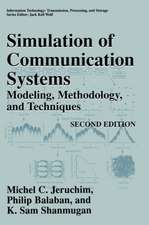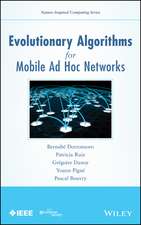On Privacy-Preserving Protocols for Smart Metering Systems: Security and Privacy in Smart Grids
Autor Fábio Borges de Oliveiraen Limba Engleză Hardback – 22 aug 2016
| Toate formatele și edițiile | Preț | Express |
|---|---|---|
| Paperback (1) | 353.36 lei 38-44 zile | |
| Springer International Publishing – 14 iun 2018 | 353.36 lei 38-44 zile | |
| Hardback (1) | 390.25 lei 22-36 zile | |
| Springer International Publishing – 22 aug 2016 | 390.25 lei 22-36 zile |
Preț: 390.25 lei
Nou
Puncte Express: 585
Preț estimativ în valută:
74.70€ • 81.17$ • 62.79£
74.70€ • 81.17$ • 62.79£
Carte disponibilă
Livrare economică 31 martie-14 aprilie
Preluare comenzi: 021 569.72.76
Specificații
ISBN-13: 9783319407173
ISBN-10: 3319407171
Pagini: 160
Ilustrații: XXVII, 143 p. 41 illus., 37 illus. in color.
Dimensiuni: 155 x 235 x 15 mm
Greutate: 0.47 kg
Ediția:1st ed. 2017
Editura: Springer International Publishing
Colecția Springer
Locul publicării:Cham, Switzerland
ISBN-10: 3319407171
Pagini: 160
Ilustrații: XXVII, 143 p. 41 illus., 37 illus. in color.
Dimensiuni: 155 x 235 x 15 mm
Greutate: 0.47 kg
Ediția:1st ed. 2017
Editura: Springer International Publishing
Colecția Springer
Locul publicării:Cham, Switzerland
Cuprins
Part I: Foundations.- Introduction.- Background and Models.- A Selective Review.- Part II: Contributions.- Reasons to Measure Frequently and Their Requirements.- Quantifying the Aggregation Size.- Selected Privacy-Preserving Protocols.- Analytical Comparison.- Simulation and Validation.- Concluding Remarks.
Notă biografică
Prof. Dr.-Ing. Fábio Borges de Oliveira concluded his doctoral research on security and privacy in smart grids. In 1994, a civil service examination selected him to the position of civil servant in the State University of Londrina - Brazil (UEL - Universidade Estadual de Londrina in Portuguese). In 2002, another civil service examination selected him to work for the Ministry of Science, Technology, and Innovation at the Brazilian National Laboratory for Scientific Computing (LNCC - Laboratório Nacional de Computação Científica in Portuguese). From 2011 to 2015, Horst Görtz Foundation supported him to work at the Technological University of Darmstadt - Germany (TU Darmstadt - Technische Universität Darmstadt in German). He holds a Ph.D. degree in Doctor of Engineering in the Department of Computer Science at TU Darmstadt, a master's degree in Computational Modeling at LNCC, and a bachelor's degree in Mathematics at UEL. Currently, he is developing research on algorithms, security, cryptography, and privacy at LNCC - Brazil.
Textul de pe ultima copertă
This book presents current research in privacy-preserving protocols for smart grids. It contains several approaches and compares them analytically and by means of simulation. In particular, the book introduces asymmetric DC-Nets, which offer an ideal combination of performance and features in comparison with homomorphic encryption; data anonymization via cryptographic protocols; and data obfuscation by means of noise injection or by means of the installation of storage banks. The author shows that this theory can be leveraged into several application scenarios, and how asymmetric DC-Nets are generalizations of additive homomorphic encryption schemes and abstractions of symmetric DC-Nets. The book provides the reader with an understanding about smart grid scenarios, the privacy problem, and the mathematics and algorithms used to solve it.
Caracteristici
Presents limitations for all privacy-preserving protocols with data aggregations Introduces the concept of asymmetric DC-Nets, including important properties such as verification Provides an implementation of an efficient asymmetric DC-Net, which can be transferred to several other applications Includes supplementary material: sn.pub/extras
















